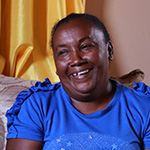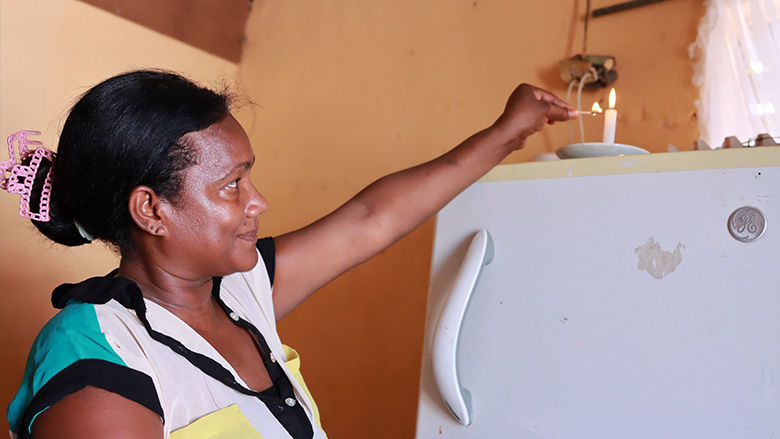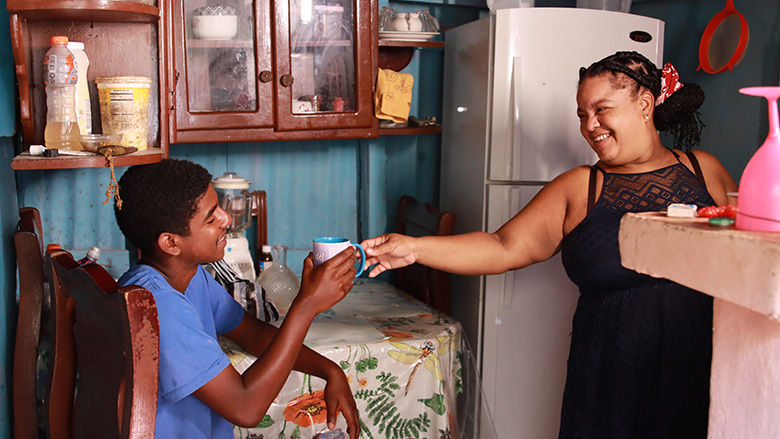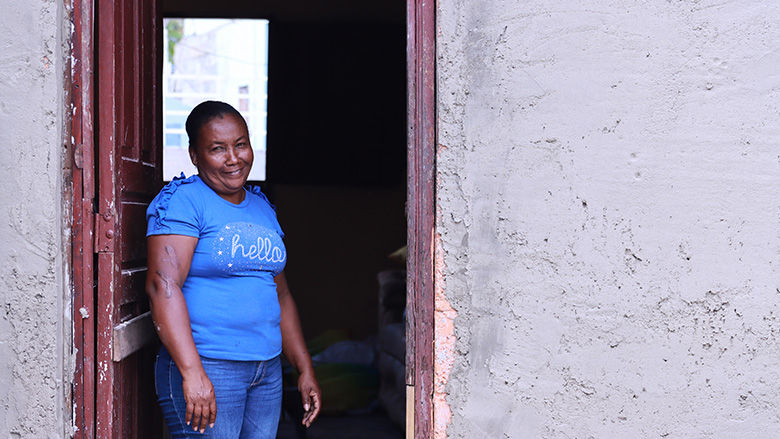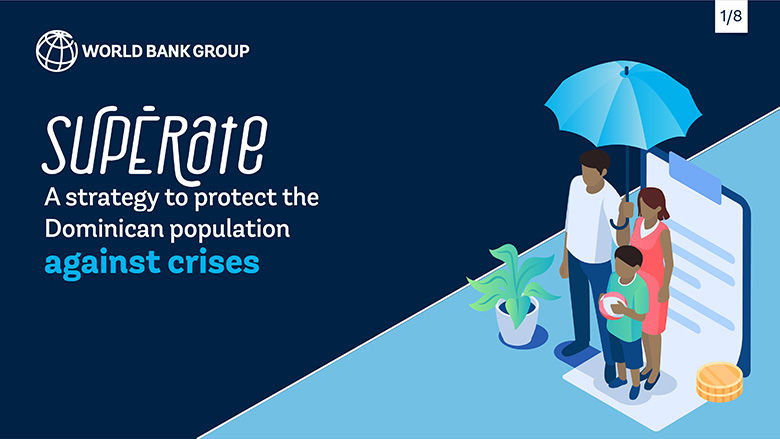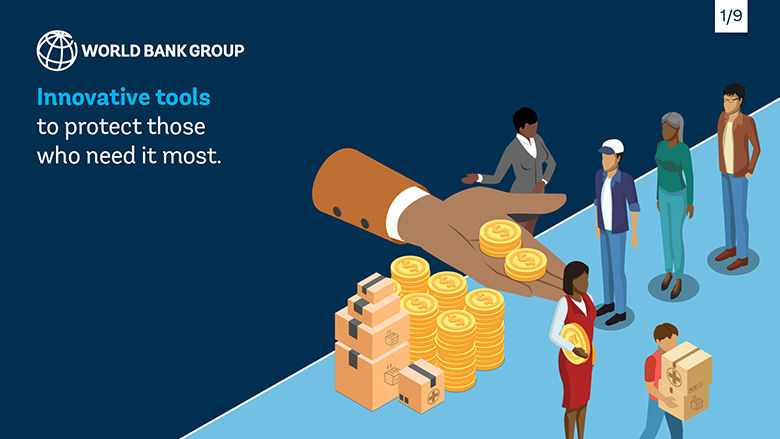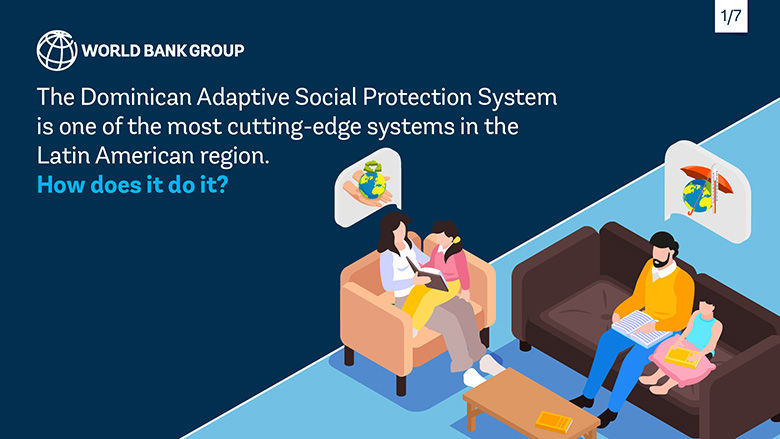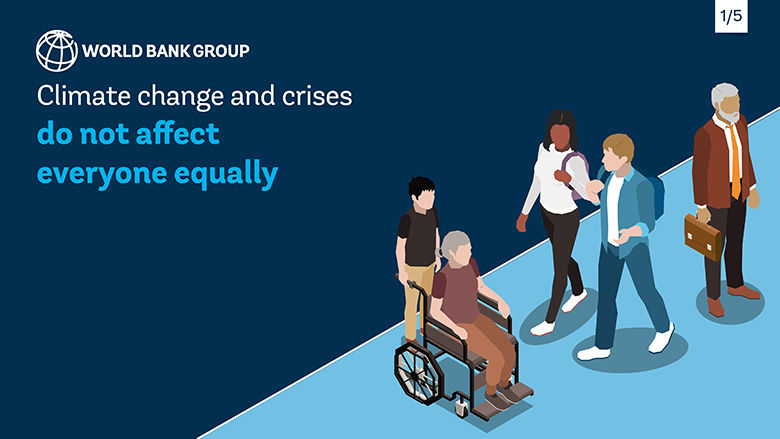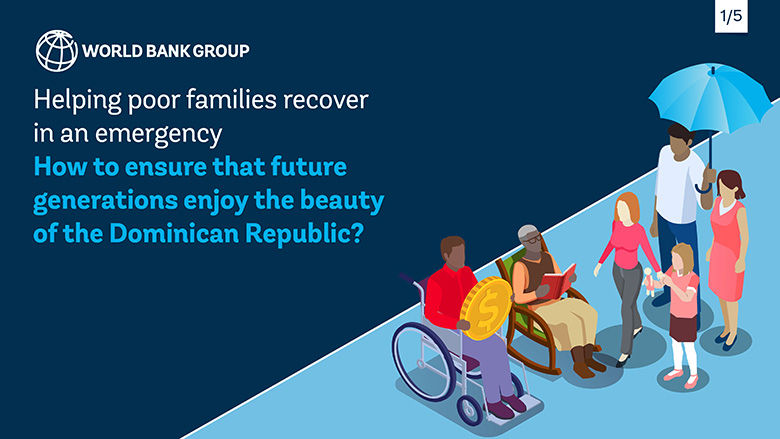These aid initiatives, which have the support of the World Bank, use a range of programs to promote food and nutrition security and the efficient use of energy. They include Aliméntate, Bonoluz, and Bonogás, all of which allow thousands of Dominicans to access essential goods and services for their daily lives.
“Adaptive” – a key component of the Dominican Republic’s commitment to social protection
Supérate incorporates various adaptive social protection measures to better respond to the impact of adverse events and improve the population’s resilience to climate change-related shocks.
In this case, “Adaptive” refers to the fact that the program has the flexibility required to clearly identify and target aid to the most vulnerable households in the face of shocks, expanding the benefits paid to recipients to meet the specific needs of each situation.
In addition, these programs call for certain criteria to be met, including, in some cases, that the youngest children go to school or that education and training courses be provided for certain groups, such as women and youth, enabling them to develop job skills and helping them to establish links to improve their labor market insertion.
The importance of social protection systems in the climate crisis
According to the recently published World Bank Country Climate and Development Report for the Dominican Republic, the country is highly vulnerable to climate change because of its geographical position and island status. About half of Dominicans live in vulnerable conditions and are at risk of falling into poverty as a result of climate-related impacts or economic shocks.
Disasters accentuate inequalities in the country, having the greatest impact on the poorest households, especially those headed by women, and pose significant risks to human capital development, income generation, security, and the population’s well-being. Climate-related loss and damage can cost the country up to one percent of its GDP. It is now forecast that the DR could face hurricanes of even greater intensity and frequency, producing heavy rains and coastal flooding.
One in four of the poorest households is at high risk of flooding, compared to one in eight among the most well-off families. In other words, the poor are doubly at risk of losing everything when a flood occurs.
To address these challenges, Supérate focuses primarily on the poorest and most vulnerable households, helping individuals prepare for, cope with, and recover from climate-related impacts and shocks. The program incorporates various adaptive social protection measures to better respond to the impact of various shocks and improve the population’s resilience to climate change-related events. How do they do it?
Some Country Success Stories

